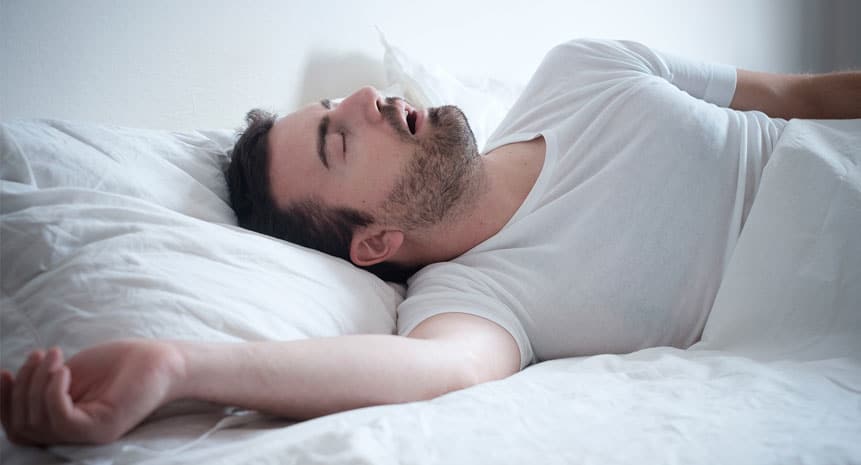
If you’re a snorer, chances are this frustrating sleep issue has impacted your life more than you know! That’s right, snoring isn’t just a nuisance to those around you—it can actually be indicative of greater health issues like sleep apnea. If you’re not able to get a proper night’s sleep, your body might be missing out on performing some important restorative processes like growing muscles, saving memories, and fighting disease. Want to learn more about your snoring? We’ve answered these five common questions for you!
What causes my snoring?
There are actually quite a few physiological reasons that you may be a snorer. Snoring is often the sound of soft tissue in the back of your throat vibrating. Therefore, if you have a slightly weaker muscle tone in your tongue or throat it could be creating this vibrating sound. That said, it is important to take note if your snoring is symptomatic of something greater, such as a sleeping disorder.
Do I have a sleeping disorder?
It is possible that your snoring is a result of obstructive sleep apnea (OSA), as this is a common symptom of the sleep disorder. OSA is caused by your upper airway narrowing or collapsing in your sleep, and it results in a series of pauses in your breathing—sometimes as many as 300 times in a night! This can greatly impact the quality of your sleep, and many experience headaches and difficulty with concentration during their waking hours.
Is my health at risk if I’m a snorer?
Unfortunately, if your snoring is a result of sleep apnea, you may be at risk of more serious health issues. If left untreated, apneic sleep can lead to stroke, heart failure, high blood pressure, depression, and more. If you’re a chronic snorer, it is absolutely worth it to get checked out as soon as possible.
I didn’t snore when I was younger—why now?
It is actually quite common for snoring to increase with age. As we get older, our muscle tone tends to loosen and we may even gain more weight around the neck. This can narrow your air passageway in the throat and lead you to snore. Women may also experience an increased likelihood of snoring due to menopause, as decreased progesterone can have an impact.
How can I fix my snoring?
Your dentist at Aurora Dental Group can provide a number of non-invasive treatments to help you with snoring and sleep apnea. By wearing these appliances at night, your jaw will be pushed forward slightly to open your airways. These remedies include such devices as Tap 3, Klearway, Snoring Therapy, Myerson EMA, and Tap 3 Elite. By wearing these appliances at night, your jaw will be pushed forward slightly to open your airways. They are completely comfortable and can potentially give you the best night’s sleep you’ve had in a long time!
Are you ready to start getting a better night’s sleep? Call Aurora Dental Group today to schedule your appointment!
